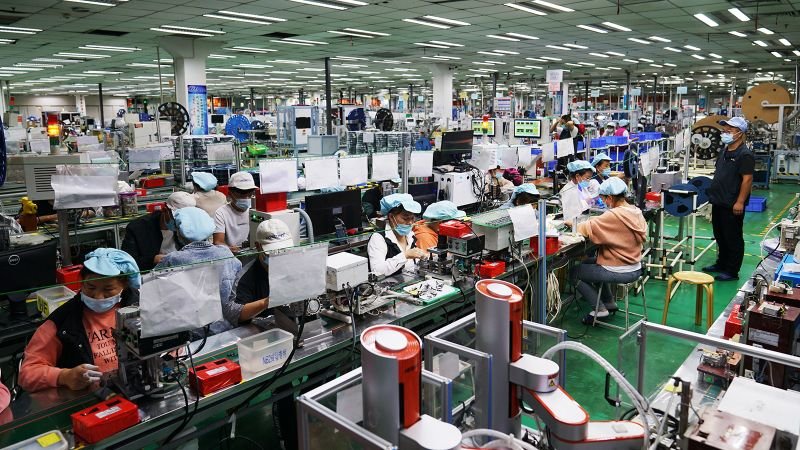Four employees of Foxconn, the world’s largest iPhone assembler, have been detained in China under suspicious circumstances, according to Taiwan’s Mainland Affairs Council. The employees were held in Zhengzhou, where a major Foxconn plant is located, on suspicion of breach of trust. The council described the situation as “quite strange” and intimated that the case might involve corruption and abuse of power by some Chinese security officials. Foxconn declined to provide any comment on the matter, but assured that the company had not suffered any financial losses due to the actions of the detained employees.
The Mainland Affairs Council expressed concern about the impact of this incident on business confidence and called for prompt investigation and resolution by the relevant authorities in China. Foxconn has affirmed that the four employees did not harm the company’s interests in any way. This incident has added to tensions between Taiwan and China, with the former raising its travel warning for citizens visiting China, following a threat from Beijing to execute individuals perceived as Taiwan independence supporters. China considers Taiwan as a part of its territory, despite Taiwan’s autonomous governance and resistance to the claim.
Despite the political tensions, Taiwanese companies have heavily invested in China over the past four decades, attracted by shared culture and language, as well as lower costs. The economic ties between Taiwan and China have deepened over time, with cross-strait business collaborations benefiting both sides. It remains to be seen how the recent detainment of Foxconn employees will impact these business relations, especially for companies operating in both countries. The accusations against the employees have raised concerns about potential wrongdoing and the need for Chinese authorities to investigate and address the situation promptly.
The circumstances surrounding the detainment of Foxconn employees highlight the challenges faced by businesses operating in politically sensitive environments. The incident has drawn attention to issues of corruption and abuse of power, further complicating the already strained relations between Taiwan and China. As Taiwan urges for a swift resolution and investigation into the matter, the case serves as a reminder of the complex political dynamics at play in the region. The response of Chinese authorities to these accusations will be closely watched by the international community and could have broader implications for cross-strait relations and business activities in the future.
The fallout from the detainment of the Foxconn employees underscores the risks and uncertainties faced by companies operating in China, particularly those with ties to Taiwan. The incident has underscored the need for stringent compliance measures and risk management strategies to navigate the complex and ever-changing regulatory environment in China. As tensions between Taiwan and China continue to simmer, businesses must remain vigilant and proactive in safeguarding their operations and interests. The incident serves as a cautionary tale for companies operating in politically sensitive regions and underscores the importance of effective government relations and crisis management protocols in mitigating potential risks.
In conclusion, the detainment of Foxconn employees in China has raised questions about corruption, abuse of power, and business confidence in the region. The incident has highlighted the challenges faced by companies operating in politically sensitive environments and the need for effective risk management strategies. As tensions between Taiwan and China persist, the response of Chinese authorities to the accusations against the employees will have broader implications for cross-strait relations and business activities. The case serves as a reminder of the complex dynamics shaping business operations in the region and underscores the importance of adherence to compliance and regulatory standards to mitigate potential risks.











